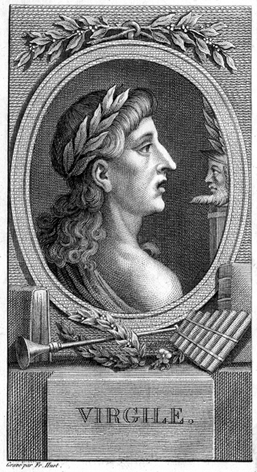Latin literature
Latin literature refers to the body of written works in the Latin language, originating in the Roman Republic and continuing through the Roman Empire into the late antiquity period. It encompasses a diverse array of genres, including poetry, drama, history, oratory, and philosophy, among others. Latin literature has had a profound influence on the development of Western culture, shaping the literature, art, law, and language of Europe and the world for centuries.
Origins and Republic Era[edit | edit source]
Latin literature began in the 3rd century BC with the adaptation of Greek literary models by Roman authors. Early Latin writers, such as Livius Andronicus and Gnaeus Naevius, were heavily influenced by Greek predecessors, translating works into Latin and creating original compositions that laid the foundation for future Roman literary achievements. The Roman Republic era saw the rise of great poets like Quintus Ennius, known as the father of Roman poetry, and Plautus, who refined the Roman drama with his comedies.
Golden Age of Roman Literature[edit | edit source]
The Golden Age, particularly during the reign of Augustus, was marked by the works of Virgil, Horace, Ovid, and Livy, among others. Virgil's Aeneid is considered one of the greatest epic poems of Roman literature, blending myth and history to promote Roman values and Augustus's regime. Horace and Ovid excelled in poetry, exploring themes of love, mythology, and morality, while Livy offered a detailed account of Roman history from its mythical origins to his contemporary period.
Silver Age and Late Antiquity[edit | edit source]
Following the Golden Age, the Silver Age of Latin literature was characterized by a more ornate and artificial style. Writers like Seneca, Lucan, and Tacitus produced works that reflected the complexities and challenges of Roman society during the early Empire. The decline of the Roman Empire saw the transition to Late Antiquity, where Christian writers such as Augustine of Hippo began to emerge, blending classical literary forms with Christian themes and values.
Legacy[edit | edit source]
The legacy of Latin literature is immense, influencing the development of Western literature, philosophy, and education. Many Latin works were preserved through the Middle Ages and the Renaissance, leading to a revival of classical learning known as Humanism. Latin literature not only shaped the development of Italian literature, French literature, and other national literatures but also contributed to the formation of the modern Western literary canon.
See Also[edit | edit source]
Navigation: Wellness - Encyclopedia - Health topics - Disease Index - Drugs - World Directory - Gray's Anatomy - Keto diet - Recipes
Search WikiMD
Ad.Tired of being Overweight? Try W8MD's physician weight loss program.
Semaglutide (Ozempic / Wegovy and Tirzepatide (Mounjaro) available.
Advertise on WikiMD
WikiMD is not a substitute for professional medical advice. See full disclaimer.
Credits:Most images are courtesy of Wikimedia commons, and templates Wikipedia, licensed under CC BY SA or similar.
Contributors: Prab R. Tumpati, MD




